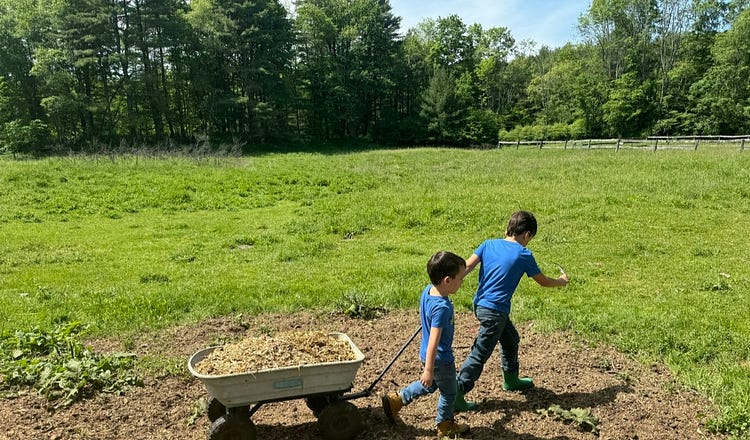What City Kids Learn on My Farm

“Kids get a lot of freedom on the farm, but there’s one rule: everyone has to do chores.” (Photo by Larissa Phillips)
‘Hens don’t lay on demand. Tomatoes aren’t ripe in June. And animals don’t care about your feelings.’
424
Here are some things I have taught the kids who visit my farm: animals don’t care about your feelings, and sometimes we kill them to eat them. It doesn’t matter how desperately you want to find more eggs, the hens don’t lay on demand. Tomatoes aren’t ripe in June. The stalls aren’t going to clean themselves. Cuts, scrapes, and stings aren’t really a big…
Continue Reading The Free Press
To support our journalism, and unlock all of our investigative stories and provocative commentary about the world as it actually is, subscribe below.
$8.33/month
Billed as $100 yearly
$10/month
Billed as $10 monthly
Already have an account?
Sign In


